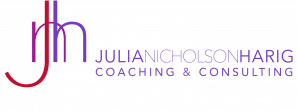Hello Friends!
After a fairly quiet period of Wintering for most of Q1, Q2 has exploded out of the gate. And I confess I am confronted too often with the concept of time: how to manage it, how to budget it, and how to own it.
So it was no surprise that one of the latest episodes of my favourite podcast, The Long and the Short of It, had an episode on exactly this topic. They have an eerily prescient ability to release podcast episodes on topics pertinent to me, in the same way that Amazon and Google start showing you ads for things you have only been thinking about! 😉
In a clear indication that this is indeed something I should be looking into, the Long and the Short of It did an episode called Time Audit. Never heard of a time audit? Me either! Here’s how it was described in the pod:
“…one of the things that I’ve done […] is to do a time audit and to basically make an account of how you’re spending your time on any given day. And holy guacamole, this is a scary and illuminating prospect.”
I believe it! There are so many aspects of this to explore. Time blocking. Deep work. Meeting overload. So I thought this would be a great topic for this week’s newsletter. I don’t know anyone who would say they have their time or their calendar completely under control. Definitely room for improvement here!
BUDGET YOUR ENERGY…
Step 1 to owning your time is to first identify where exactly your time is going!
And part of that is also to figure out how that correlates to your energy. It isn’t just about plotting out all the meetings you had in a day. It’s also about recognizing what gave you energy, and what drained you.
As this article from a performance coach makes clear, “Most of us manage our finances carefully, making sure we have enough money to get us through the day, or the week, or the year. But […] we don’t manage our own energy in the same way.”
I often talk with my clients about people being energy givers or energy vampires, but that’s something we need to think of in terms of tasks and meetings too! We need to create a budget for our energy in the same way as we budget our finances.
One of the excellent suggestions in the article was to “combine activities in a way that mitigates some of the debits. Could you follow Steve Jobs’s example and have a meeting while taking a walk? If you have a long commute, can you spend that time listening to an audiobook, podcast, or music that energizes and refreshes you? Combining energy-draining activities with energy-building ones lets you put a little back into your energy budget instead of just depleting it.”
I am definitely going to try this!
Another aspect of that time budget is to know what you do want to fill your time with. How often do you reflexively grab your phone to scroll mindlessly while waiting for a Zoom minute to start, for example? Another of the practical suggestions in the Long & the Short of It podcast was to “start a running list of things that I want to do if I have extra time. And some people have broken that into categories, like, “People I’d like to call if I had fifteen minutes,” or, “When I have more than twenty minutes, lay down and take a nap,” or, “Pour myself a cup of tea, but really savor the drinking experience,” or, “Look out the window.” It could be anything. But to your point, when we don’t really know what to do, we just start doing things to distract ourselves from the fact that we don’t know what to do.”
Another thing I am going to be trying out!
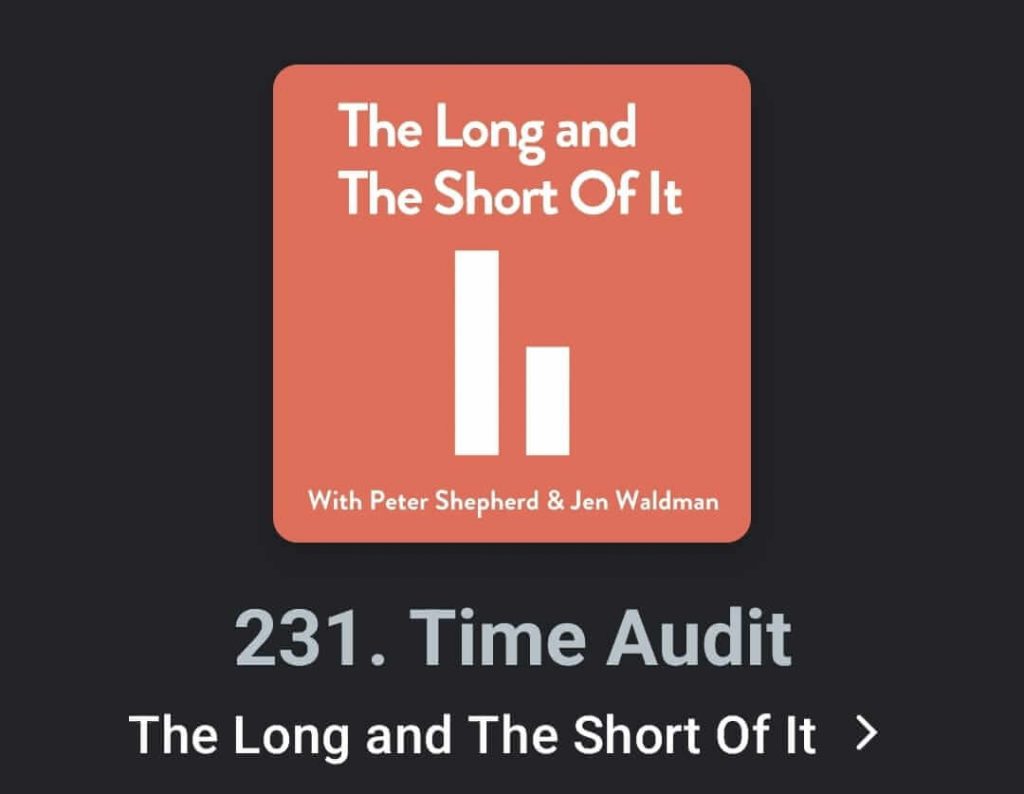
DEEP WORK…
I have really recognized lately how much I need time and space for deep work. Creating a Keynote or preparing for a new coaching client is not something that can be squeezed in between other things, 5 minutes here and 10 minutes there. Since the start of the year, I’ve blocked Mondays from meetings as my “CEO Days” – the time I need to do the deep work necessary to show up as the coach and entrepreneur I want to be. It’s been very effective, and I’m so glad I have been able to make this happen. It isn’t easy to hold that time “free” (I don’t have the day off – I have the day free of meetings. There is a huge difference), but it is well worth it.
A lot of companies are also encouraging Meeting Free Fridays, for exactly this reason – so that people can have some undisturbed focus time. Is this something you have at work?
I was gifted Deep Work by Cal Newport for Christmas, and it’s a great read. While I think it is potentially self-evident why we need time for deep work, this got me thinking:
“To remain valuable in our economy, therefore, you must master the art of quickly learning complicated things. This task requires deep work. If you don’t cultivate this ability, you’re likely to fall behind as technology advances. […] as we shift to an information economy, more and more of our population are knowledge workers, and deep work is becoming a key currency.”
Increasing complexity is one of the top business challenges for leaders. And the best tool to handle that is deep work.
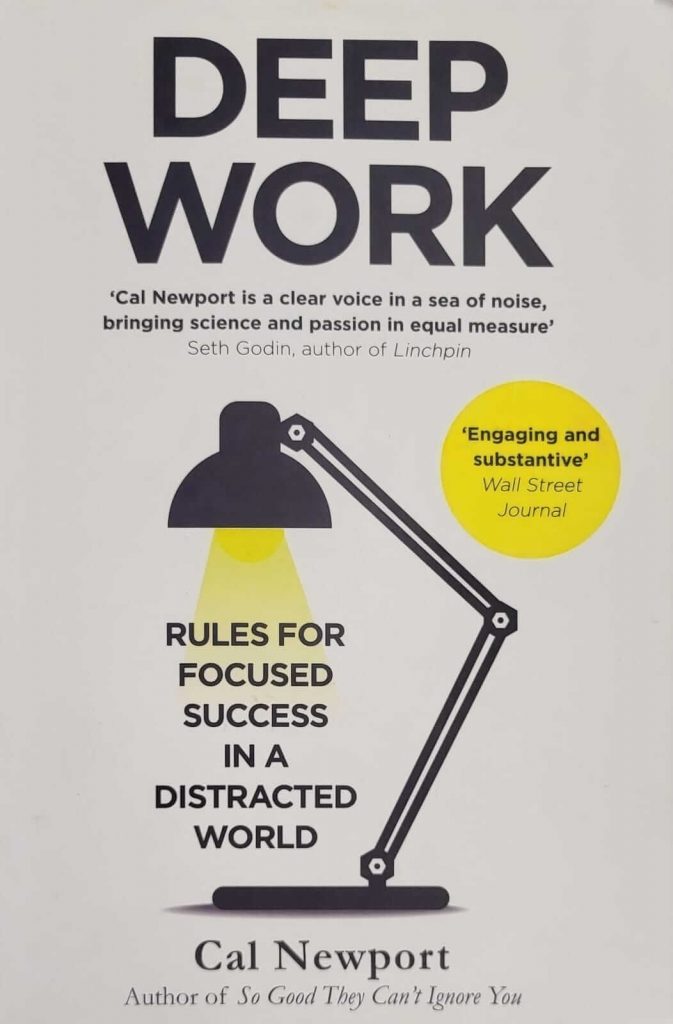
DEEP WORK’S NEMESIS – THE MEETING…
How much deep work is anyone able to do in a meeting? None, obviously. That isn’t the point of a meeting. However, we are unfortunately increasingly falling into the trap of over-reliance on meetings as our main form of work.
How intentional are your meetings? How much thought went into the structure, agenda, and purpose?
I really loved this podcast on “meeting culture run amok” discussing how unproductive many (the majority?) meetings are and how challenging it can be to think from scratch about why we have meetings and what they should contain. Some companies have even gone so far as to declare meeting bankruptcy – eliminating all meetings and then starting from square one. Sounds appealing in some ways, doesn’t it?!
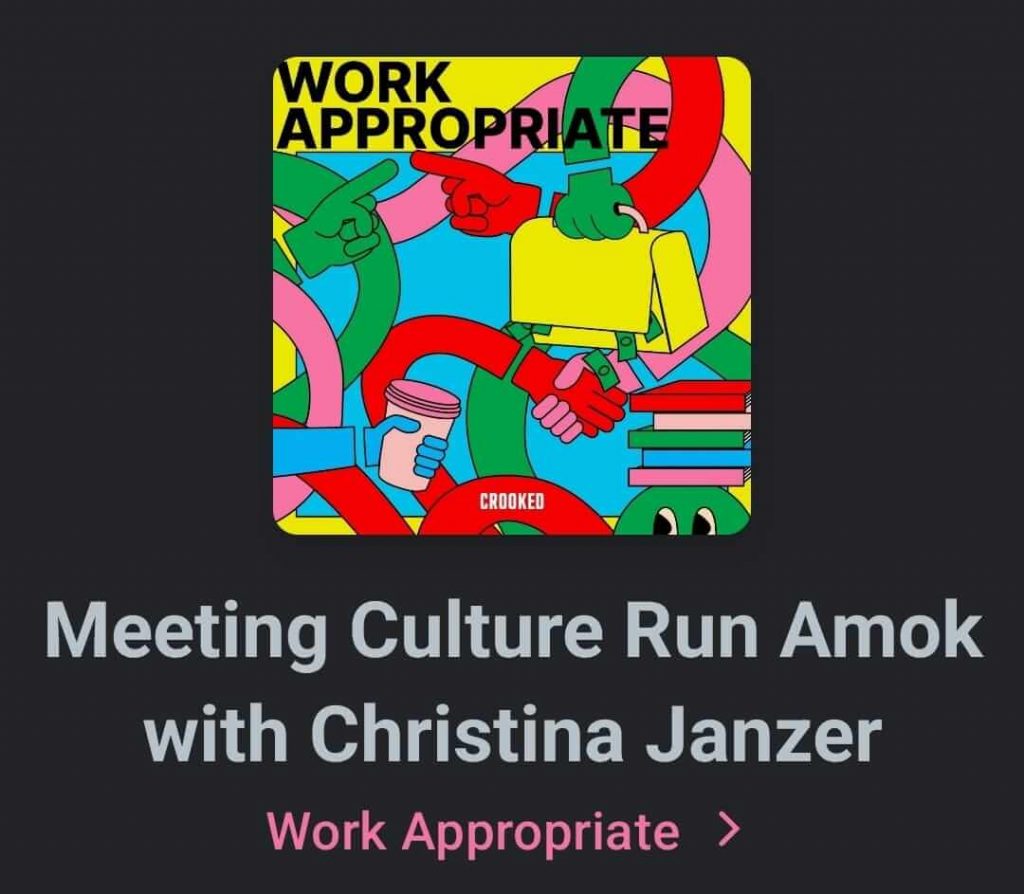
MEETING HYGIENE…
If you have five minutes – and “listen to a podcast” might be one of those things you identified above in your time audit with which you’d like to fill your time! – there is a brilliant TED podcast on making meetings count. I really just wanted to transcribe the whole podcast it was so helpful!
The key points:
1. Ask yourself: do you really need the meeting?
- The subject of the invite should be an action verb (decide, finalize, create next steps). “Review” isn’t an action verb!! Send the slide deck and let people read. [Sing it sister!!! I’ve been saying this for years!! 😉 ]
2. Invite the least number of people possible.
- (The optimal size of a decision-making meeting is 5.)
3. Make your meetings shorter.
4. Say no to other people’s meetings.
5. Be ruthless with your time.
Now I realize this is a lot easier if you yourself are the meeting creator, rather than an invitee, but I know I am guilty of mindlessly accepting invites for meetings without even asking what the agenda is! So maybe we all need a bit of work on our meeting hygiene!
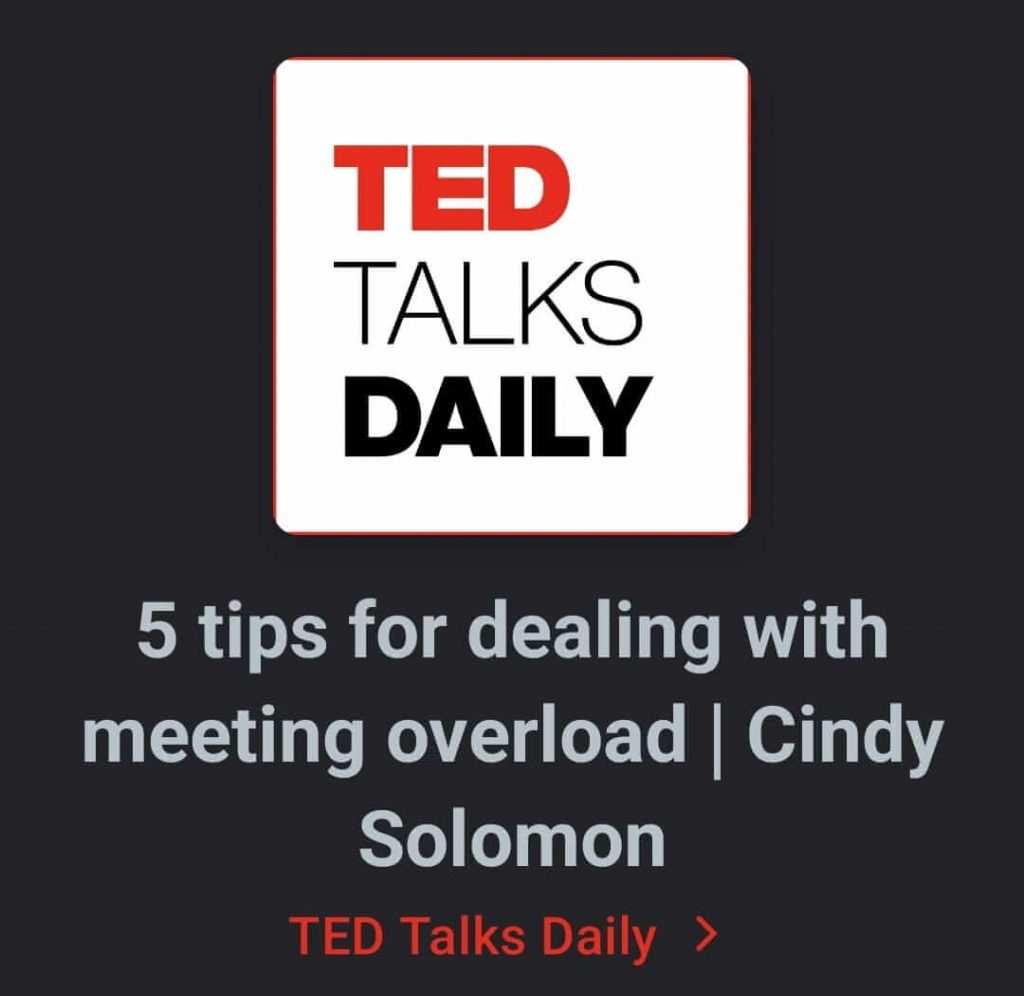
WHAT I’M READING…
For as long as I can remember, historical fiction has always been my favourite literary genre. It almost doesn’t matter in which historical period the story takes place – there is something about slipping into a previous “life” that grabs me. [I sometimes think this is the reason I am not the biggest fan of science fiction and fantasy – it’s too much work for me to create unknown worlds in my mind. I want to focus just on the story.]
One book that kept cropping up in my recommendations was The Book of Lost Names by Kristin Harmel. In a similar vein to Sarah’s Key or The Book Thief, this is a story of a Jewish woman in France in the 1940s who manages to elude capture by the Nazis in Paris and escape to the Free Zone, hoping to cross the border to neutral Switzerland. Instead, she unexpectedly and inadvertently gets involved with the French Resistance, becoming a prolific expert forger. She forges new documents for Jewish children escaping to Switzerland, all of whom have their Jewish history (and names) erased in their new identities and papers. As many of them are too young to remember who they used to be, she and her partner-in-crime come up with a code to track their birth identities to their newly forged personae.
I was hooked. I devoured the book in a matter of days. There were tears. It was beautiful. In some ways simplistic, but nevertheless beautifully written and an intriguing tale. Based on a true story, but only very loosely. Absolutely the best story I’ve read so far this year!
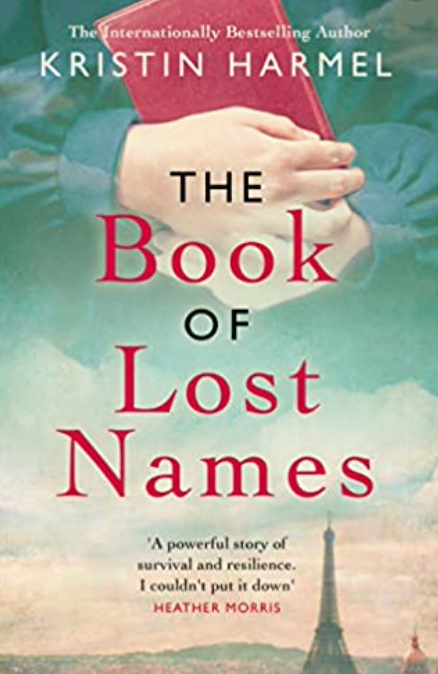
I hope you this newsletter created a few thought-provoking moments. Let me know if you put any of those thoughts into action!!
Wishing you a wonderful week!
Be emotional. Stay healthy.
Hugs,


